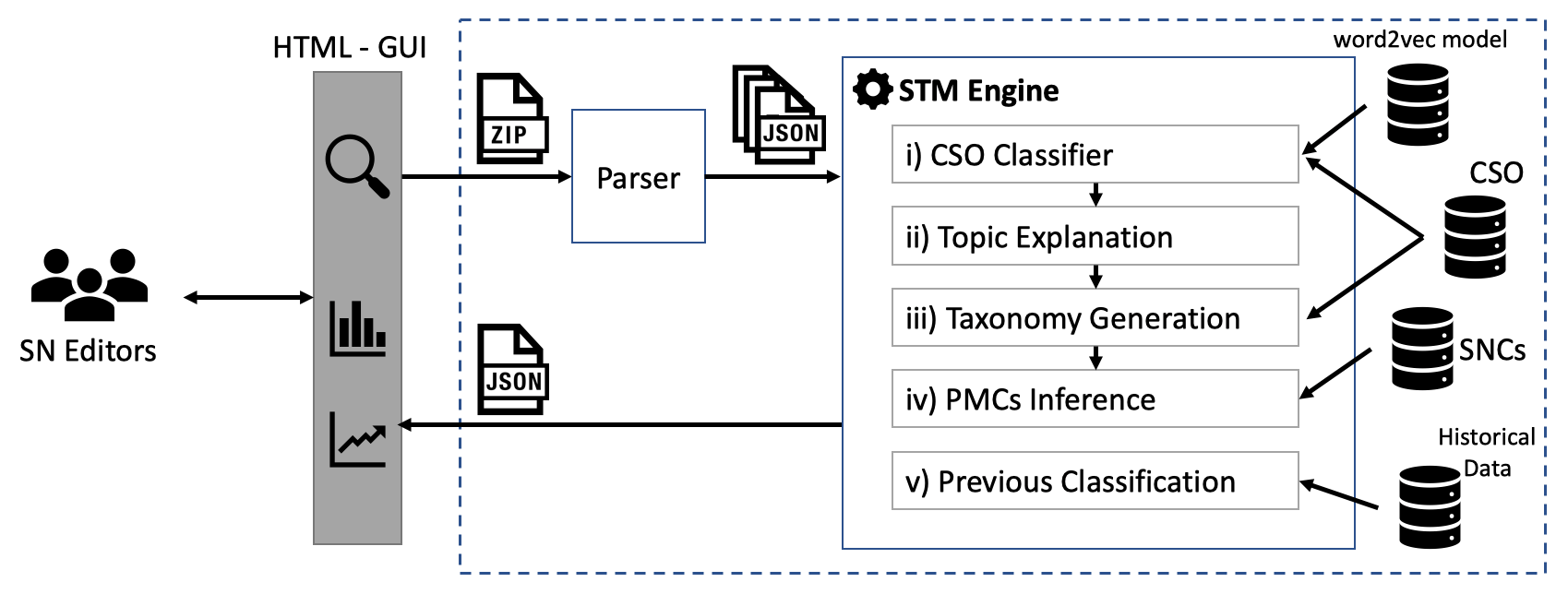“AIDA-Bot: A Conversational Agent to ExploreScholarly Knowledge Graphs” is a demo paper accepted for presentation at the International Semantic Web Conference (ISWC 2021) poster and demo session. Antonello Meloni1, Simone Angioni1, Angelo Antonio Salatino2, Francesco Osborne2, Diego Reforgiato Recupero1, Enrico Motta2 1 Department of Mathematics and Computer Science, University of Cagliari (Italy) 2 Knowledge Media […]
Category: Human Computer Interaction

1st Smart City and Robotic Challenge (SCiRoC 2019)
Last week — 18th to 21st September 2019 — the first International Competition on Smart Cities and Robotics took place in Milton Keynes (UK). Different teams from Spain, UK, Germany, France, Portugal and others took part in this competition. As the name suggests, SCiRoC aims at bringing robots in the context of smart cities. Indeed, their primary objective was to interact both with smart cities infrastructures, such as the MK Data Hub, and citizens.

Improving Editorial Workflow and Metadata Quality at Springer Nature
Identifying the research topics that best describe the scope of a scientific publication is a crucial task for editors, in particular because the quality of these annotations determine how effectively users are able to discover the right content in online libraries. For this reason, Springer Nature, the world’s largest academic book publisher, has traditionally entrusted this task to their most expert editors. These editors manually analyse all new books, possibly including hundreds of chapters, and produce a list of the most relevant topics. Hence, this process has traditionally been very expensive, time-consuming, and confined to a few senior editors. For these reasons, back in 2016 we developed Smart Topic Miner (STM), an ontology-driven application that assists the Springer Nature editorial team in annotating the volumes of all books covering conference proceedings in Computer Science. Since then STM has been regularly used by editors in Germany, China, Brazil, India, and Japan, for a total of about 800 volumes per year. Over the past three years the initial prototype has iteratively evolved in response to feedback from the users and evolving requirements.

2100 AI: Reflections on the mechanisation of scientific discovery
“2100 AI: Reflections on the mechanisation of scientific discovery” is a paper submitted to the RE-CODING BLACK MIRROR Workshop co-located with the International Semantic Web Conference (ISWC) 2017, 21-25 October 2017, Vienna, Austria. Authors Andrea Mannocci, Angelo Salatino, Francesco Osborne and Enrico Motta Abstract The pace of nowadays research is hectic. Datasets and papers are […]
Advanced classification of Alzheimer’s disease and healthy subjects based on EEG markers
Authors: Vitoantonio Bevilacqua, Angelo Antonio Salatino, Carlo Di Leo, Giacomo Tattoli, Domenico Buongiorno, Domenico Signorile, Claudio Babiloni, Claudio Del Percio, Antonio Ivano Triggiani, Loreto Gesualdo Abstract: In this study, we compared several classifiers for the supervised distinction between normal elderly and Alzheimer’s disease individuals, based on resting state electroencephalographic markers, age, gender and education.
Smart Health 2.0
The goal of the project “Smart Health 2.0” is the realization of a technological system that implements an innovative model of healthcare based on the paradigm of digital open architecture, modular and scalable. The system allows to enable the development of new models of applicative cooperation among different operating entities in the field of Health, […]
Introductory Lecture to Audio Signal Processing
With this post, slides and source code, used during the introductory lecture on Audio Signal Processing for Human Computer Interaction, are presented. The slides are available on my Slideshare profile or you can follow the link below. Instead, for source code you can download a zip using the GitHub section below or cloning the repository.
Evaluation of Resonance in Staff Selection through Multimedia Contents
Authors: Vitoantonio Bevilacqua, Angelo Antonio Salatino, Carlo Di Leo, Dario D’Ambruoso, Marco Suma, Donato Barone, Giacomo Tattoli, Domenico Campagna, Fabio Stroppa, Michele Pantaleo Abstract: In this paper we present the results of an experimental Italian research project finalized to support the classification process of the two behavioural status (resonance and dissonance) of a candidate applying for a job position.
Design and Implementation of an innovative framework for Speech Emotion Recognition
[English] With this article I want to publish my thesis work in Human-Computer Interaction, for the Master’s Degree in Computer Systems Engineering at Polytechnic of Bari. The entire thesis has been written in Italian. For this reason, I have prepared a English brief summary explaining all materials, methods, results and conclusions. Use the following link […]
First Progresses in Evaluation of Resonance in Staff Selection through Speech Emotion Recognition
Authors: Vitoantonio Bevilacqua, Pietro Guccione, Luigi Mascolo, Pasquale Pio Pazienza, Angelo Antonio Salatino, Michele Pantaleo. Abstract: Speech Emotion Recognition (SER) is a hot research topic in the field of Human Computer Interaction. In this paper a SER system is developed with the aim of providing a classification of the “state of interest” of a human subject involved in a job […]



